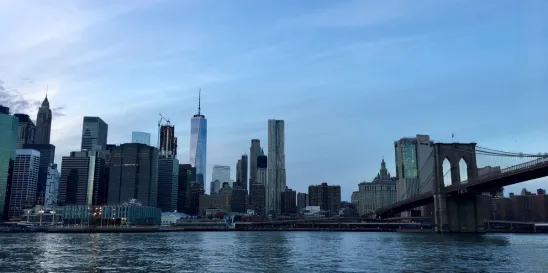On January 20, 2024, New York City enacted a law that will create a private right of action allowing employees to file lawsuits in court alleging violations of the city’s Earned Safe and Sick Time Act (ESSTA) within two years of learning of an alleged violation.
Quick Hits
- New York City enacted a law that will allow individuals to file civil actions alleging violations of the city’s safe and sick time requirements within two years.
- The filing of an administrative complaint will neither be a prerequisite nor bar to filing a civil action.
- Complainants will be able to recover compensatory damages, injunctive and declaratory relief, attorneys’ fees and costs, and other appropriate damages.
- The law takes effect on March 20, 2024.
The new law, Int. 0563-2022, will allow “any person” alleging violations of the ESSTA to file lawsuits in court with or without first filing a complaint with or notifying the Department of Consumer and Worker Protection (DCWP). Complainants will have two years from learning of a potential violation to file such a claim.
The law, which was passed by the New York City Council on December 20, 2023, was adopted after New York City Mayor Eric Adams returned the bill unsigned. The law will take effect on March 20, 2024.
Background
The ESSTA generally provides covered employees the right to use safe and sick leave for the care and treatment of themselves or a family member and seek legal and social services to protect themselves or a family member who may be a victim of domestic violence or unwanted sexual contact, stalking, or human trafficking. The ESSTA requires employers to provide employees between forty and fifty-six hours of paid or unpaid leave, depending on the size of the employer.
In October 2023, the DCWP finalized new regulations to amend its regulations concerning the ESSTA to align with amendments to the law passed in 2020. The new regulations, among other things, clarify how employer size will be determined, explain how remote workers will be counted, and flesh out notice requirements and accrual methods.
Private Right of Action
Int. 0563-2022 amends Section 20-924 of the administrative code of the city of New York to allow “any person” to “commence a civil action in any court of competent jurisdiction” alleging a violation of the ESSTA “within 2 years of the date the person knew or should have known of the alleged violation.” The filing of a complaint with the DCWP will be “neither a prerequisite nor a bar to bringing a civil action.”
Penalties and Remedies
The new law will change allowable civil penalties that may be imposed under the ESSTA to “on a per employee and per instance basis” (emphasis added). Under the law as amended by Int. 0563-2022, “[a]ny entity or person found to be in violation” of the ESSTA’s provisions for the accrual and use of safe or sick leave or retaliation against those attempting to exercise their rights under the act could be found liable for $500 in civil penalties for the first violation and up to $750 for a second violation and up to $1,000 for “each succeeding violation” within two years of “any previous violation.”
Moreover, in addition to compensatory damages, complainants will now be able to recover injunctive and declaratory relief, attorneys’ fees and costs, and other appropriate damages.
Department Complaints
Prior to Int. 0563-2022, individuals only had a right to file a complaint with the DCWP, which was required to investigate the claim and keep the complainant notified of the progress. If DCWP determined that a violation occurred, the claim was then sent to an administrative tribunal.
The new law amends this this process to allow any person to file a civil action in court, in addition to, a DCWP complaint for the “same alleged violation.” If a civil action and a DCWP complaint are filed, then the DCWP will stay its investigations until it is notified that “such civil action is withdrawn or dismissed without prejudice.” After a final judgment or settlement, the department will then dismiss the complaint unless it “determines the complaint alleges a violation not resolved by such judgment or settlement.”
Complainants will have thirty days to notify the DCWP in a manner to be determined by the department. Still, the DCWP retains the authority to “open an investigation on its own initiative.”
Reporting
Additionally, the law amends the DCWP’s public reporting requirements, by requiring the department to annually report on its website the:
- number and nature of complaints filed, “including the number of such complaints not substantiated and the number of notices of violations issued”;
- number of civil actions filed to the extent the DCWP was notified of such actions;
- number of investigations the DCWP opened and closed; and
- average time it takes for a complaint to be resolved.
Next Steps
Int. 0563-2022 could open employers up to potential liability from employees for the failure to provide employees with safe and sick leave time and any compensation required by the ESSTA. New York City employers may want to review their safe and sick leave policies in light of the ESSTA, as amended in 2020, and the DCWP’s newly amended regulations.





 />i
/>i
